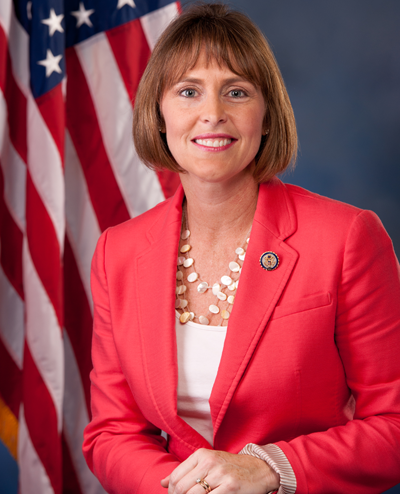Q and A with House Representative Kathy Castor

Q: How would you sum up your current view of the media?
A: [It is] vitally important in this day and age when there is so much confusing news out there, and we have someone in the White House who has demonstrated a track record of misleading folks – I’ve never seen anything like it. But for me personally, it is very important that I am able to answer questions that journalists ask me, and that I’m able to share the things I am working on with my constituents.
Q: How do you think the idea of “fake news” has affected the relationship between politics and the press?
A: It has galvanized the press. it’s been interesting because over time we’ve seen a reduction of newspapers – we’ve lost the Tampa Tribune in our home town – and i think that has really hurt the ability of the average person to get news. At the same time, it’s been a boom to journalists in online media, but the problem is there used to be a few trusted sources and now it’s all over the map. Citizens have to be very careful and do a little bit of their own homework on what is truthful and what is not.
Q: What advice would you give to a media consumer trying to discern real facts from potentially biased interpretations of political events?
A: There are fact checking websites, and you really have to be discerning. It’s difficult now because people really like to have their own personal views reinforced, but it’s important for them to go to trusted sources. I guess I’d leave it at that, but it’s difficult in this day and age, especially when there is so much misinformation online.
Q: Do you think the media ever misrepresents politicians and their views?
A: I don’t think it’s the Tampa Bay Times or CNN or the New York Times or the Washington Post. People need to understand the difference between the editorial content and the news report content. Some sources out there attempt to sway your opinion, and people have to think for themselves. That’s the importance of a strong education system, so that from a very young age people can think critically and analyze, and if they don’t trust the answer to something, go and do a little research themselves.
That’s a great [benefit of] the internet, there is so much knowledge at your fingertips, but it needs to come from trusted sources.
Q: How much, if at all, does the media’s coverage influence your position on hot topic issues?
A: I’m a huge consumer of the news, I’m constantly reading different news sources, and I have to take all of that in and bring it all in to help me make policy decisions. Add on to that, talking to my neighbors informs me, what they care about helps me prioritize the matters I’m going to focus on in Tampa and in Washington D.C.
Q: In your experience, do you think the media speaks differently about men and women?
A: Oh yes, absolutely. There’s always much more attention to a woman’s age and appearance. It’s not quite as blatant as when my mother entered public service in the ’70s, but i definitely notice it.
